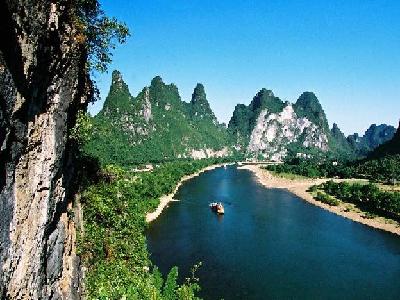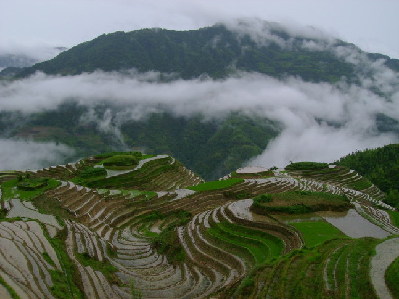An Introduction to Yangshuo
Yangshuo is a very scenic, small county and city surrounded by many karst mountains and beautiful scenery near Guilin, Guangxi. It is very popular among tourists.
It is popular for its incredible karst scenery, beautiful mountains, rivers, caves, and temples as well as its laid back cafes and bars. However, as a result, there is no shortage of tourists, ex-pats, and other foreigners.

Yangshuo isn't your typical Chinese town and does not have the big-city feel as in most other Chinese cities. It is more like a vacation town, with wonderful restaurants and shops. Yangshuo has a reputation as a foreigners' village in Southern China and is a major stop on the trail of many independent travelers.
The main tourist area is laid out roughly like a ladder. The two main tourist streets run more-or-less parallel up from the river and end at one of the town's larger streets. There are assorted smaller streets (rungs) crossing between the two larger streets. The street (ladder vertical) on the left seen from the River is West Street and is the older more established tourist street, the real center of things. The other long tourist street is Diecuilu.

There's a small creek that runs down the center of the "ladder", some of the prettiest bars and restaurants in town are on balconies near it. The street there is called Guiha Lu. It has recently undergone heavy rebuilding and now has many new shops, bars and restaurants. Toward the river end, it curves to intersect Diecielu.
At the "foot of the ladder" by the river is an open area with a large number of vendors hawking all sorts of tourist stuff, both from shops and from handcarts. There are also a number of rather nice riverside hotels.
Across the "top of the ladder" is a major street (Pantao Lu) with many hotels. The town's main bus station is at the corner where that main street meets Die Cui Lu. The intersection has a large open area that becomes very busy at night, with dozens of restaurants and hundreds of diners. Do not expect English menus or non-Chinese dishes.
Editor: Shi Liwei



